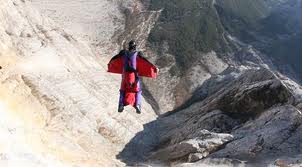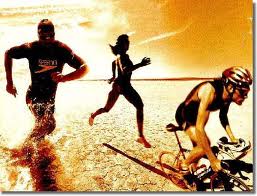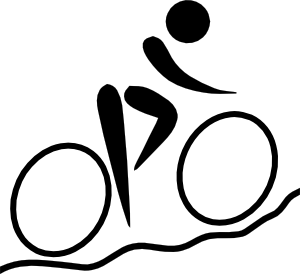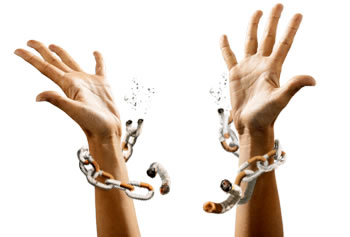"Fortune favors the bold." – Virgil
This past Thursday on NBC’s The Today Show Matt Lauer visited the Jungfrau Observatory in the Swiss Alps. In this segment he met up with legendary climbers who reach great heights.  Specifically he focused on three climbers and their motivations, techniques, and focus used to climb the iconic north face of the Eiger Peak (elevation 13,000 feet). All three men had something to say that reminded me of the dangers of sex addiction and the sometimes unimaginable quest in reaching the summit of successful recovery.
Specifically he focused on three climbers and their motivations, techniques, and focus used to climb the iconic north face of the Eiger Peak (elevation 13,000 feet). All three men had something to say that reminded me of the dangers of sex addiction and the sometimes unimaginable quest in reaching the summit of successful recovery.
First, the story of John Harlen, the first American to climb the steep and craggy north face of the Eiger tells the tale of obsession, motivation, and the quest for redemption. Four years after solidifying his place in history as the first American to climb the north face, Harlen died taking a more direct route up in 1962. Sex addiction is a diesease of incresing escalating behaviors. Some may die in the quest for even greater new heights.
Forty years later his son, John Harlen III, climbed the same route that his father had perished on. He said he had to do it and felt it was cathartic to get to know his father. I am not sure what exactly motivated his son, but I know often in families we consciously or unconsciously follow in family footsteps to understand the things that are not, or cannot be, talked about. I surmise it gave him a chance, in not physically knowing his father, to know him a little better to literally climb his path. I wonder if there was an element of re-righting what could not be done in the previous generation – a kind of healing that allows one to close “the undone” in families.
Next, Ueli Steck, was interviewed. Steck is best known for his speed record in reaching the summit of the Eiger. Usually a climb that takes greater than three days on average, Steck made the summit in a staggering 2 hours and 47 minutes! When asked “how did you do this?” Steck replied “ I didn’t ‘just do it’, it was training, lots and lots of training! “ Steck went on to say if he doesn’t train well and do the tasks he needs to do well, he dies. And so it is with sex addiction. If addicts do not train in new tasks of recovery, they are at risk for dying if the disease progresses unchecked.
Lastly, Dean Potter, an American on the climbing scene, said in his interview “I love the fact I change the worst possible thing to the best possible thing: dying to flying!”  Well that caught my attention! As the scene showed him jumping off the mountain in his flying suit, I thought of those who struggle in the diseases of addiction. Addiction-to-recovery is a dying-to-flying tale. The tools of recovery offer the addict the opportunity to right a hopeless path.
Well that caught my attention! As the scene showed him jumping off the mountain in his flying suit, I thought of those who struggle in the diseases of addiction. Addiction-to-recovery is a dying-to-flying tale. The tools of recovery offer the addict the opportunity to right a hopeless path.
All three stories have elements of warning and success in reaching great heights in recovery. Obsession motivates, obsession gives us quest, but some may die in their quest. Some may die in the addiction if they don’t get their training rituals right in recovery. That training for technique must be the new obsession, if one is to truly be successful. I have heard Dr. Patrick Carnes say addicts need to do something in the practice in their recovery at least 45 minutes every day. The men in my early recovery group know if they apply themselves to the techniques of recovery laid out for them, they get better. They begin to trust successful training begets more success in their recovery and life. Many I sit with in active addiction process are seeking the next height of escalated dopamine hits from a brain science perspective. This height is their mountain. Some men I have sat with in their sex addiction have put themselves at great risk for deadly disease, physical danger, or other severe consequences of acting out. Feelings of worthlessness keep one stuck in the throes of the disease. If one can enter recovery by taking the plunge, one can create a life of soaring unimaginable heights that Dean Potter demonstrated: Dying to flying! That is the true story of addiction and successful recovery. If you struggle, I hope you trust taking the plunge and creating new positive rituals will bring you to new unimaginable heights.
If you care to watch the segment: http://today.msnbc.msn.com/id/26184891/vp/45237977#45237977

 I spend a lot of time training for events in my life both personally and professionally. I am a goal oriented person. I attribute much of the achieved success I have aimed for in my life to goal setting and surrounding myself with a supportive network to achieve those goals. I have thought how similar that is to those I see who are successful in their recovery processes from addiction. Nowhere in my life is that training more evident than in the endurance sports I engage in and the circle of endurance athletes I am privileged to observe and hang with.
I spend a lot of time training for events in my life both personally and professionally. I am a goal oriented person. I attribute much of the achieved success I have aimed for in my life to goal setting and surrounding myself with a supportive network to achieve those goals. I have thought how similar that is to those I see who are successful in their recovery processes from addiction. Nowhere in my life is that training more evident than in the endurance sports I engage in and the circle of endurance athletes I am privileged to observe and hang with.
 Often one might feel the hell one knows is often better than the hell one doesn’t know. There is necessity to trust and let go just as one has to lift one’s feet off the ground to place them on the pedals of the bike. As on the bike, one needs to begin to find a new balance. I remind my clients to look at their focus in early recovery as I reminded my daughter to focus on successfully riding the bike. I ask my clients are you focusing on not using? Or are you focusing on gaining the skills that support the balance of recovery. In treatment we are building skills of successful recovery.
Often one might feel the hell one knows is often better than the hell one doesn’t know. There is necessity to trust and let go just as one has to lift one’s feet off the ground to place them on the pedals of the bike. As on the bike, one needs to begin to find a new balance. I remind my clients to look at their focus in early recovery as I reminded my daughter to focus on successfully riding the bike. I ask my clients are you focusing on not using? Or are you focusing on gaining the skills that support the balance of recovery. In treatment we are building skills of successful recovery. 




 One doesn’t do endurance sports without an occasional mishap from a passerby. Similar to the addict, I looked for something to blame. There was no one or no vehicle nearby. I saw a pine cone rolling across the sidewalk and I laughed. I turned around to pick it up. It was a perfectly shaped pine cone. I said to myself….”that’s perfect”, meaning the pine cone…and then I thought, “that’s perfect!” Yes, the NAME of the website I was thinking SexAddictTherapist.com was PERFECT! I ran home in excitement knowing I must investigate if that web domain name was available. I considered it a God-moment. Those, too, are necessary in recovery. The moment of insight when you know you are on the right path and what you must do.
One doesn’t do endurance sports without an occasional mishap from a passerby. Similar to the addict, I looked for something to blame. There was no one or no vehicle nearby. I saw a pine cone rolling across the sidewalk and I laughed. I turned around to pick it up. It was a perfectly shaped pine cone. I said to myself….”that’s perfect”, meaning the pine cone…and then I thought, “that’s perfect!” Yes, the NAME of the website I was thinking SexAddictTherapist.com was PERFECT! I ran home in excitement knowing I must investigate if that web domain name was available. I considered it a God-moment. Those, too, are necessary in recovery. The moment of insight when you know you are on the right path and what you must do.